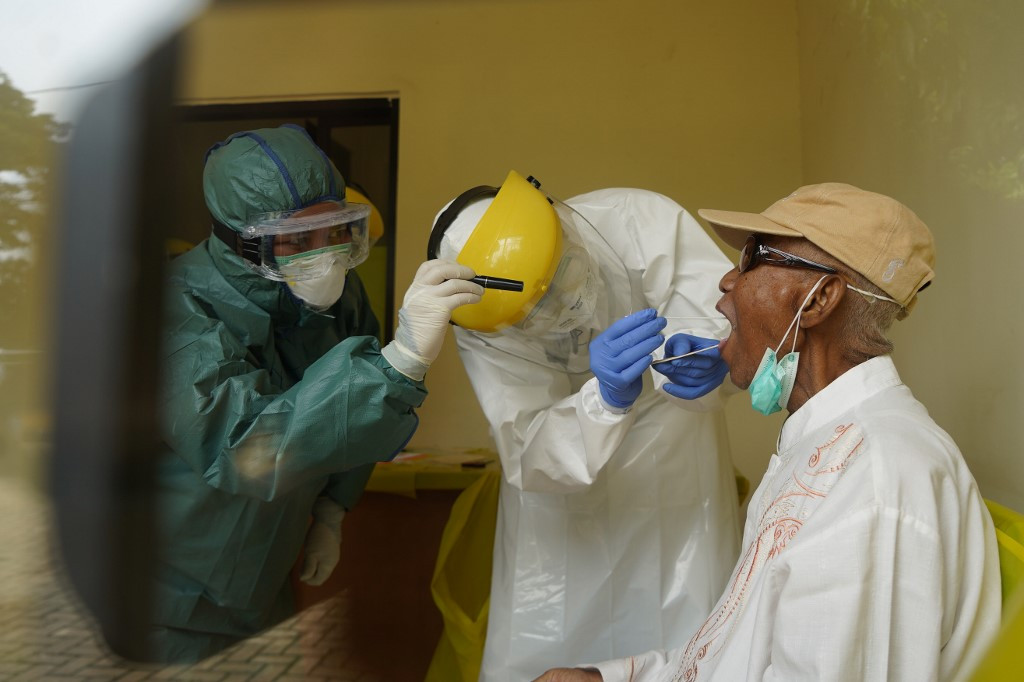Popular Reads
Top Results
Can't find what you're looking for?
View all search resultsPopular Reads
Top Results
Can't find what you're looking for?
View all search resultsRed alert, red tape
Taking back power from the local governments but then imposing more stringent restrictions on them is a recipe for a new disaster on top of an existing emergency. It is simply a power grab.
Change text size
Gift Premium Articles
to Anyone
G
eorge Orwell said the point at which a government starts to use euphemisms is the time when it starts to disguise the truth. Thus, when the state apparatus starts to use euphemisms, it could mean that even the direst of situations will be treated as business-as-usual.
That moment arrived on March 30, when the central government issued guidelines on “large-scale social restrictions” (PSBB) based on the 2018 Health Quarantine Law in response to a chorus of demands from health experts, local and regional governments to impose a quarantine, or “lockdown”, which are interchangeable generic terms used by most governments in the world in the fight against COVID-19.
Not only that, the central government balked at imposing a stay-at-home order for everyone in a bid to prevent the spread of the coronavirus, it in fact started to curb the use of the term “lockdown’” or even “quarantine”, a term which is clearly used in the above law.
It has not stopped with words. When local and regional administrations began taking quick action to impose local lockdowns or quarantines and other precautionary measures that could save lives, the central government did its best to make their job more complicated.
According to Government Regulation No. 21/2020 on large-scale social restrictions, provinces and cities are required to obtain a permit from the Health Ministry to impose physical-distancing rules to reduce the transmission of COVID-19.
The Health Ministry issued a follow-up regulation on Friday requiring regional heads wanting to enact a PSBB to submit requests alongside data on the increase of cases by also providing an epidemiology curve and a map on the spread of the virus, as well as data proving that transmission had already happened in the region.
Apparently, someone in the legal department of the State Secretariat and the Health Ministry thought the best use of time for local governments was for them to draw a map, compile relevant data, write a letter and then mail it to the ministry, when precious time and energy should instead be allocated toward making life-saving decisions.
The Health Ministry promised that a decision on a PSBB could be made within two days of submission, but does
the two-day rule apply at the weekend or only on business days? Even during a pandemic, civil servants still need days off, right?
In times of crisis, when a central government decides to centralize decision-making process, the ultimate goal surely must be to slash red tape so that quick decisions can be made and more lives can be saved. Taking back power from the local governments but then imposing more stringent restrictions on them is a recipe for a new disaster on top of an existing emergency. It is simply a power grab.
A pandemic is an extraordinary event and with more than 1 million people now infected globally, even the best bureaucracy would have problems coping with the magnitude of the problem. Last time we checked, the bureaucracy in this country remained slow, corrupt and inefficient. COVID-19 patients deserve far better.










